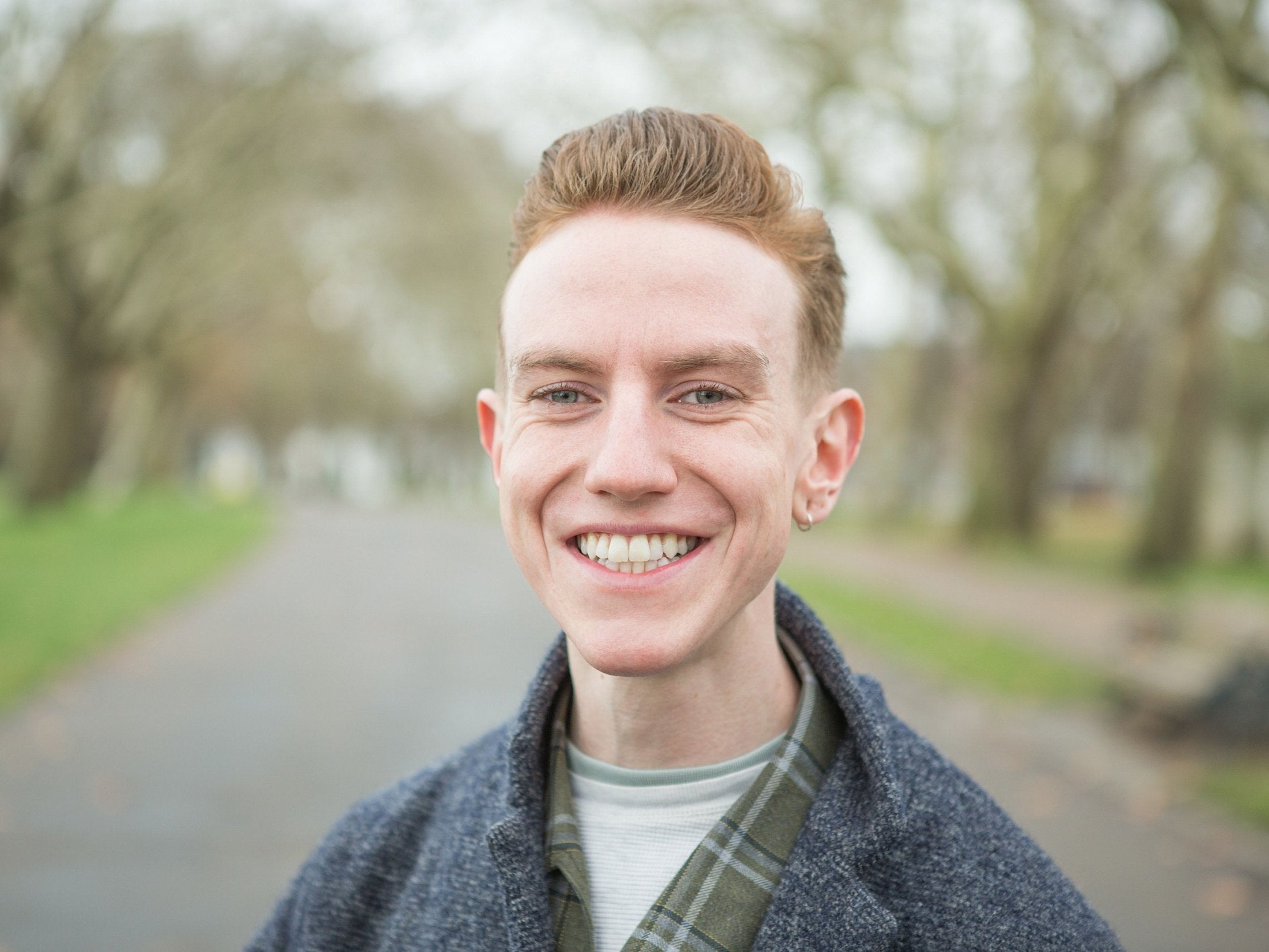AIDSfree: ‘My diagnosis came out of the blue ... no one spoke about HIV’
When Andrew Bates was 21, he was diagnosed with HIV. Now he is using his status to help others

Your support helps us to tell the story
From reproductive rights to climate change to Big Tech, The Independent is on the ground when the story is developing. Whether it's investigating the financials of Elon Musk's pro-Trump PAC or producing our latest documentary, 'The A Word', which shines a light on the American women fighting for reproductive rights, we know how important it is to parse out the facts from the messaging.
At such a critical moment in US history, we need reporters on the ground. Your donation allows us to keep sending journalists to speak to both sides of the story.
The Independent is trusted by Americans across the entire political spectrum. And unlike many other quality news outlets, we choose not to lock Americans out of our reporting and analysis with paywalls. We believe quality journalism should be available to everyone, paid for by those who can afford it.
Your support makes all the difference.When Andrew Bates went to his GP complaining of a high fever, rash, ulcers and swollen glands, he expected to be told he had the flu and sent home to rest.
Instead, the 21-year-old was sent for an HIV test which came back positive.
The diagnosis was a complete shock. As a young man who went to school in the 2000s, Mr Bates says HIV was not a subject that was widely discussed. Even as a young gay man, he says his awareness of HIV was limited.
“It came completely out of the blue. I was living without a gay network and HIV wasn’t something that was spoken about that often,” he says.
HIV doesn’t define me but it’s now such a big part of my life. I used what was a really rubbish situation to better my life and other people’s lives
“I didn’t think it was something I was at risk of. I was acutely unwell and thought I had a viral infection and the flu. When the GP ordered a blood test, I was quite certain she was just doing her job and this was just a precaution.
“I didn’t think I had been putting myself at risk. I was quite hopeful when I took the test but I got called back in and told the virus was in my bloodstream. I didn’t feel an initial shock or horror because I knew so little about it. I didn’t know what it meant.”
Mr Bates was diagnosed three years ago, at a time when breakthroughs were being made in treatment. He was immediately put onto medication, rather than having to wait. He continued: “It was an interesting time. There was so much change in regards to treatment and diagnosis. I got involved in a study and started on medication about one week after being diagnosed.”
Mr Bates had side effects of sickness and dizziness from the medication for three days, which subsided. Now the virus is not detectable in his blood and cannot be passed on.
He takes two tablets each day and needs two blood tests a year.
It took him some time to speak openly about his diagnosis. He says: “I stopped thinking about it and didn’t deal with it. Whenever I had the conversation and told someone, they were always shocked, saddened and fearful, and I was reassuring them. So I stopped. I thought ‘I am healthy. They don’t need to know.’ But I did need to speak about it because otherwise it was a dirty secret.”
He decided to run a half marathon for the Terrence Higgins Trust, an HIV and sexual health charity, and revealed his story on his fundraising page. He raised £2,000 and developed a passion for running and healthy living. He added: “I thought I would do the race and raise some money and never go back to it but I loved it so I am now part of a running club. When I was diagnosed I didn’t know what would happen – if it would be a death sentence or if I would be poorly for the rest of my life, but it is the opposite. I am better than ever before.”
Now 25 and living in Hackney, Mr Bates, originally from Sunderland, is a support worker for people with learning disabilities and is training to be an occupational therapist. On his experience growing up, he says: “HIV wasn’t on the horizon or spoken about at school. We were told what to do if you get chlamydia or gonorrhoea – get this cream and it will get better – but nobody was honing in on HIV.” He adds: “LGBT-inclusive sex education wasn’t a big part of education. You just think, ‘That won’t happen to me.’
“HIV doesn’t define me but it’s now such a big part of my life. I used what was a really rubbish situation to better my life and other people’s lives.”
Money raised from public donations through the AIDSfree appeal will be used to support the Elton John AIDS Foundation projects in six key cities around the world (London, Nairobi, Atlanta, Kiev, Delhi and Maputo). Through UK Aid Match the UK government will double public donations up to £2m to be spent across projects in Maputo and Nairobi
Join our commenting forum
Join thought-provoking conversations, follow other Independent readers and see their replies
Comments